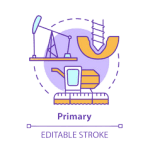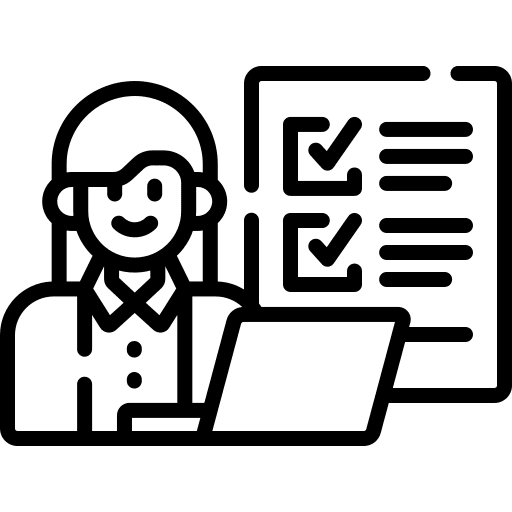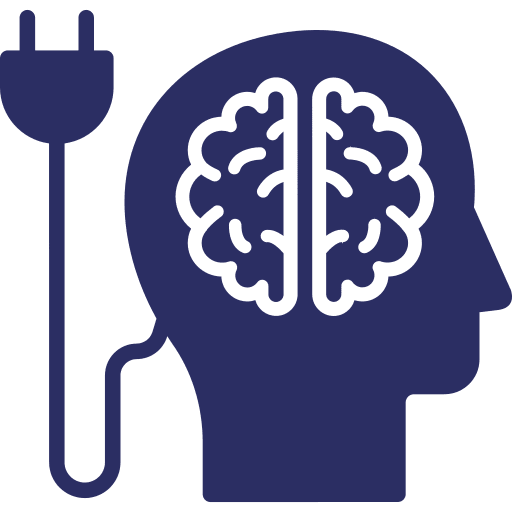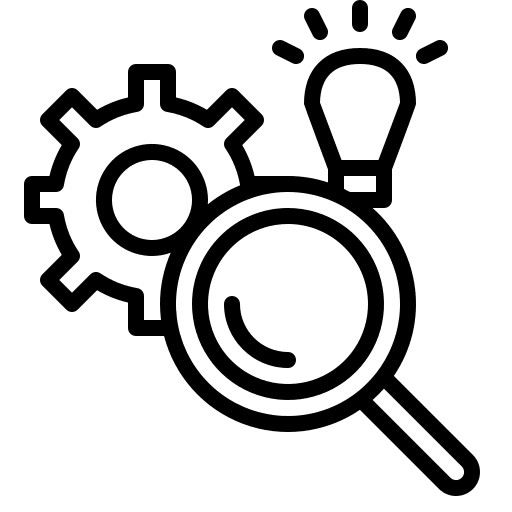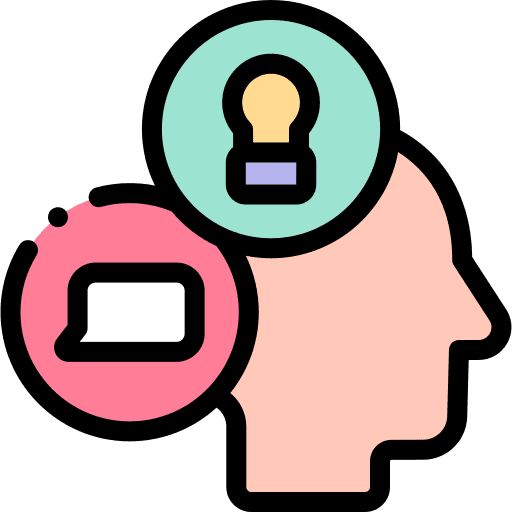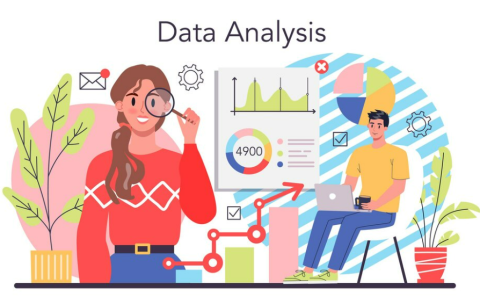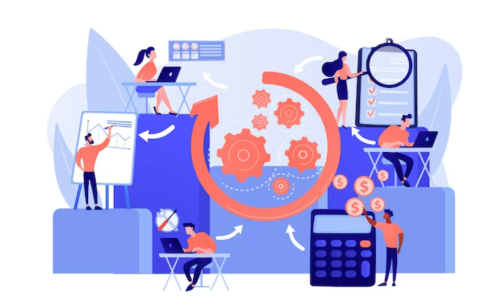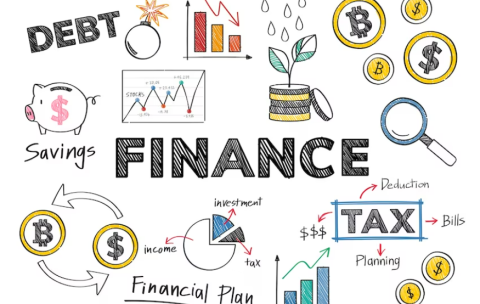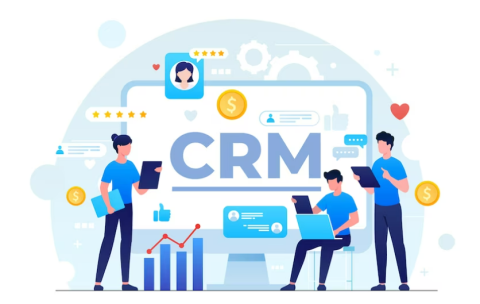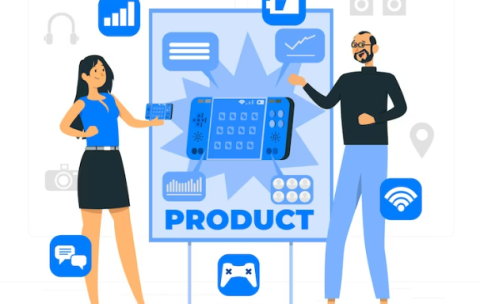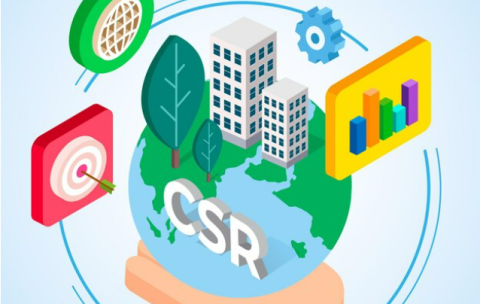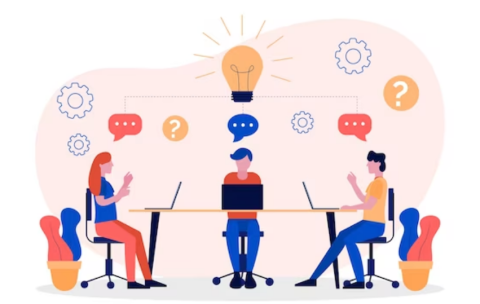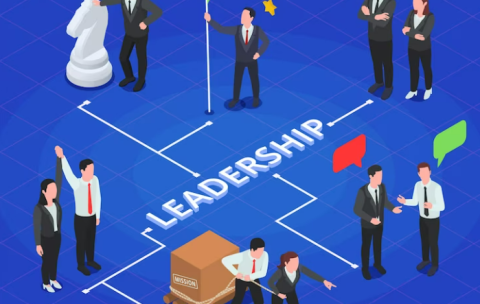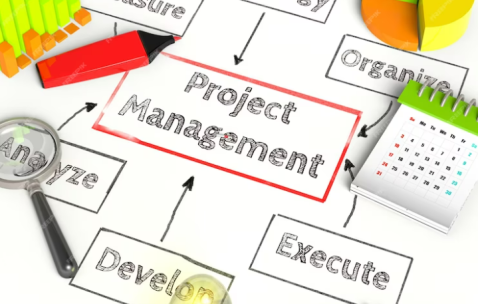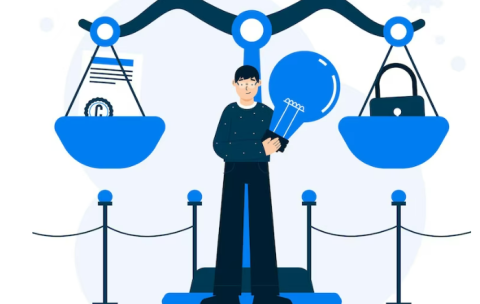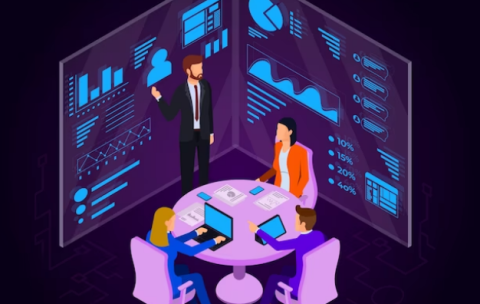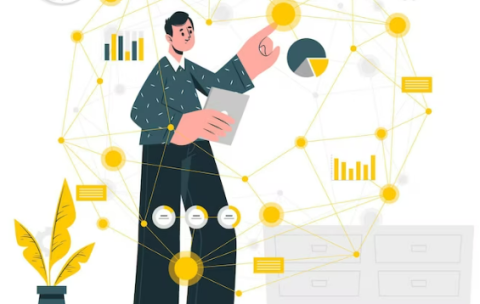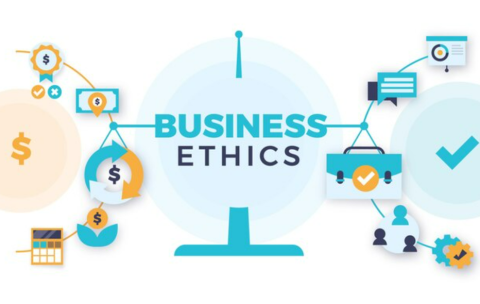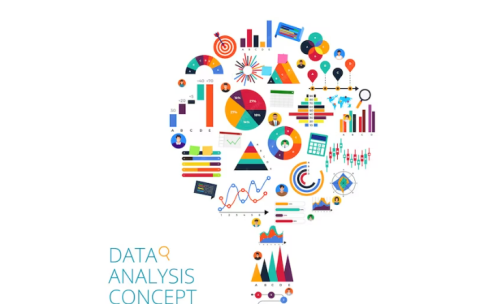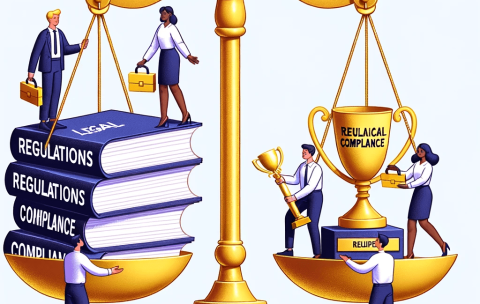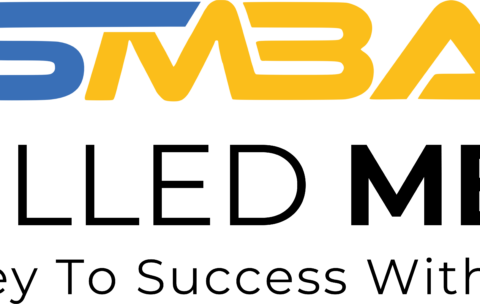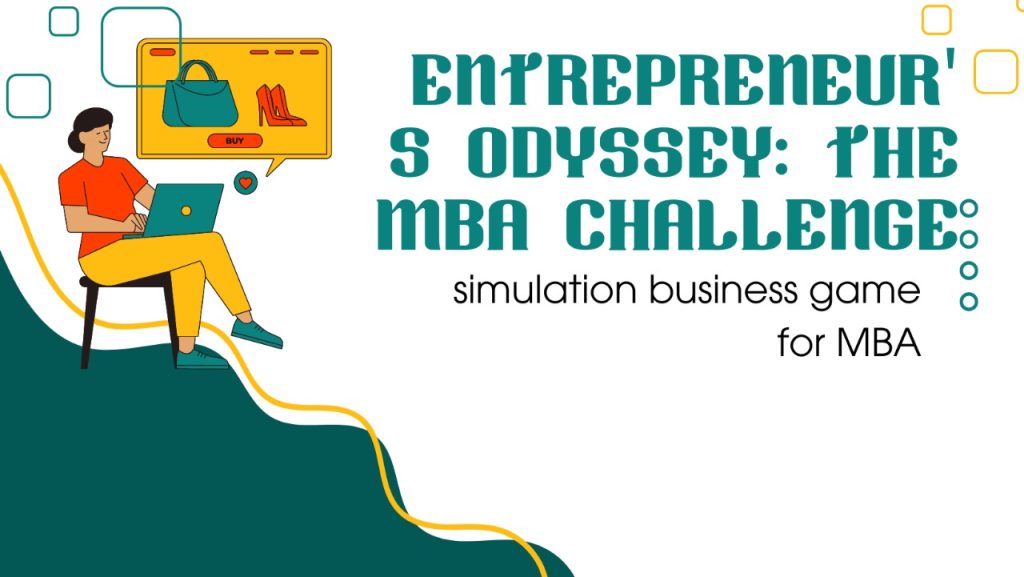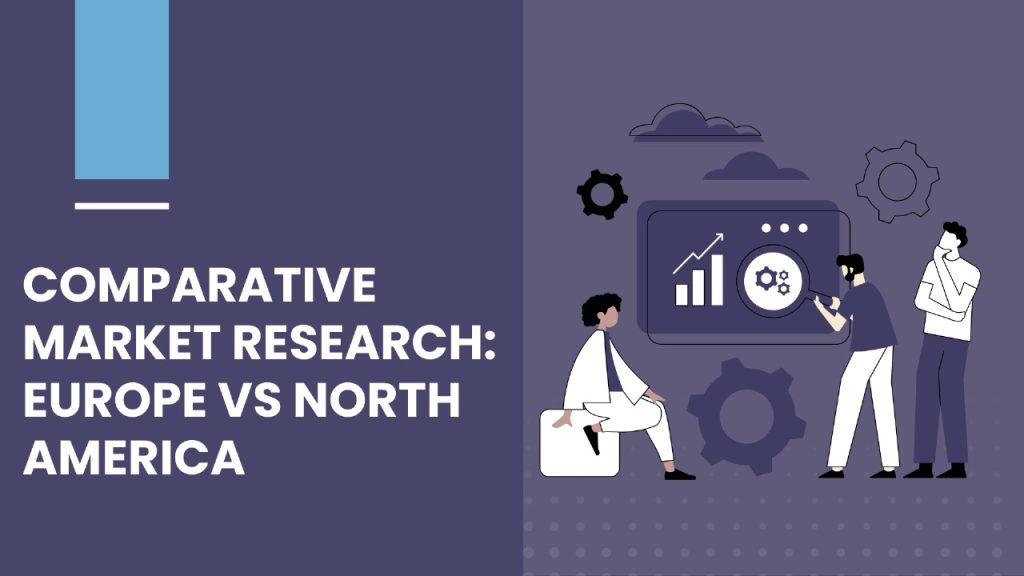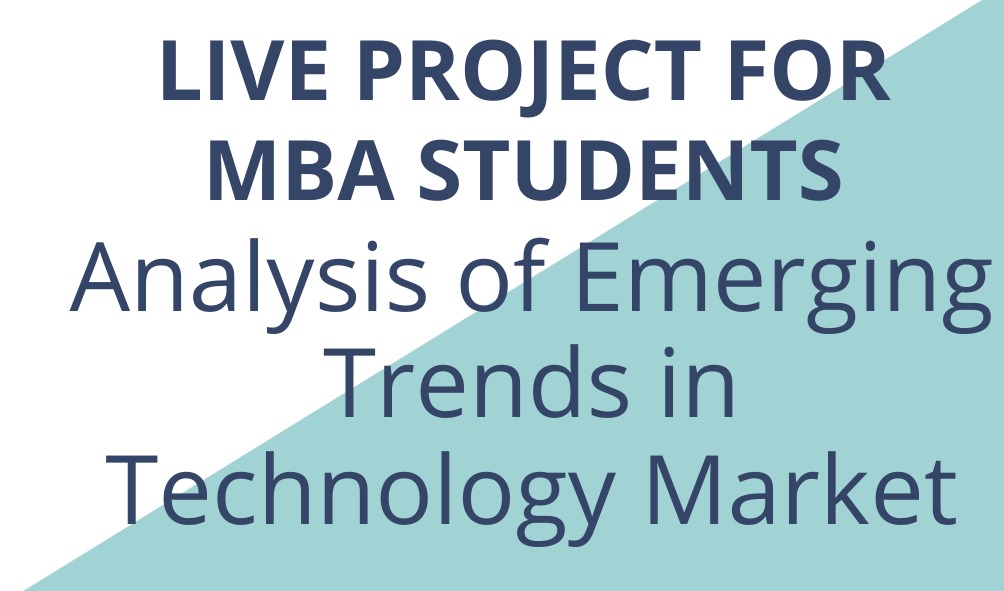Skilledmba
August 25, 2020 2024-07-15 15:38Skilledmba


journey to success
Customized Skills-Driven Courses Aligned with Modern Global Corporate Needs.
Collaborate, Innovate, Elevate: Students, Educators, Industry – Redefining MBA Together. Empowering MBA students with knowledge and skills that fuels success.

Learn The Essential Skills
Earn Certificates And Degrees
Get Ready for The Next Career
Master at Different Areas
Career Vista
- Primary Sector
- Secondary Sector
- Quaternary Sector
- Quinary Sector
- Tertiary Sector
- Gig Economy
Primary Sector
The Primary Sector encompasses industries involved in the extraction and production of natural resources. These industries include agriculture, fishing, forestry, and mining. As the foundation of economic activity, it offers diverse career opportunities ranging from farm management to mineral exploration.
Agribusiness and Food Supply Chain Management
What you'll learn
Global Mining Operations and Management
What you'll learn
Advanced Forestry Management and Conservation
What you'll learn
Energy Resource Management in Primary Industries
What you'll learn
Innovative Strategies in the Fishing Industry
What you'll learn
Sustainable Agriculture Management: Principles and Practices
What you'll learn
Revolutionizing the Primary Sector: Sustainable Strategies and Innovative Approaches for MBA Professionals
₹390.00₹700.00
Revolutionizing the Primary Sector: Sustainable Strategies and Innovative Approaches for MBA Professionals
What you'll learn
Strategic Thinking and Planning
What you'll learn
Agribusiness and Food Supply Chain Management
What you'll learn
Global Mining Operations and Management
What you'll learn
Advanced Forestry Management and Conservation
What you'll learn
Energy Resource Management in Primary Industries
What you'll learn
Innovative Strategies in the Fishing Industry
What you'll learn
Sustainable Agriculture Management: Principles and Practices
What you'll learn
Revolutionizing the Primary Sector: Sustainable Strategies and Innovative Approaches for MBA Professionals
₹390.00₹700.00
Revolutionizing the Primary Sector: Sustainable Strategies and Innovative Approaches for MBA Professionals
What you'll learn
Strategic Thinking and Planning
What you'll learn
Secondary Sector
The Secondary Sector involves the processing of raw materials from the Primary Sector. This includes manufacturing, construction, and refining. Transforming raw goods into finished products, it offers careers in areas like production management, quality assurance, and engineering, serving as a bridge between raw materials and the consumer market
Innovative Product Development and Design
What you'll learn
Strategic Management in Refining and Processing Industries
What you'll learn
Construction Project Management and Sustainable Practices
What you'll learn
Supply Chain and Logistics in Manufacturing
What you'll learn
Quality Assurance and Control in Industrial Operations
What you'll learn
Advanced Manufacturing Management and Innovation
What you'll learn
Navigating Careers in the Secondary Sector: Strategies and Insights
What you'll learn
Navigating the Secondary Sector: Industrial Innovation and Operational Excellence for MBA Aspirants
₹490.00₹710.00
Navigating the Secondary Sector: Industrial Innovation and Operational Excellence for MBA Aspirants
What you'll learn
Introduction to Critical Thinking
What you'll learn
Quaternary Sector
The Quaternary Sector focuses on knowledge-based activities involving services such as information technology, finance, consultancy, education, and research. Prioritizing intellectual expertise, it offers careers in software development, financial analysis, academic research, and consulting, marking the evolution of economies towards advanced knowledge and expertise-driven domains.
Advanced Software Development for Business Applications
What you'll learn
Leadership in Educational Management and Policy
What you'll learn
Consultancy Skills for Business Leaders
What you'll learn
Innovation and Research Management
What you'll learn
Financial Analytics and Data-Driven Decision Making
What you'll learn
Strategic Information Technology Management
What you'll learn
Exploring Knowledge-based Services in the Quaternary Sector
What you'll learn
Navigating Research and Development (R&D) in the Quaternary Sector
What you'll learn
Mastery in the Quaternary Sector: Information Services and Knowledge-Based Economies for Tomorrow’s MBA Leaders
₹495.00₹750.00
Mastery in the Quaternary Sector: Information Services and Knowledge-Based Economies for Tomorrow’s MBA Leaders
What you'll learn
Quinary Sector
The Quinary Sector emphasizes human-centric services like healthcare, education, social work, and the arts. Prioritizing human interaction and well-being, it offers careers in fields like medicine, teaching, counseling, and artistic performance, underscoring the significance of personal touch and expertise in advanced economies.
Sustainable Development and Social Entrepreneurship
What you'll learn
Counseling and Mental Health Services Administration
What you'll learn
Cultural and Arts Management
What you'll learn
Social Work and Community Development Management
What you'll learn
Healthcare Management and Innovation
What you'll learn
Educational Leadership and Administration
What you'll learn
Understanding Not-for-Profit Organizations in the Quinary Sector
What you'll learn
Navigating the Quinary Sector: High-Level Decision Making and Human-Centric Services in Global Economies
₹410.00₹700.00
Navigating the Quinary Sector: High-Level Decision Making and Human-Centric Services in Global Economies
What you'll learn
Problem Analysis and Solution Development
What you'll learn
Tertiary Sector
The Tertiary Sector revolves around providing services rather than producing tangible goods. This encompasses retail, transportation, tourism, and banking. As the backbone of modern economies, it offers careers in areas like sales, hospitality, finance, and logistics, highlighting the importance of interpersonal skills and customer engagement.
Service Marketing and Management
What you'll learn
Customer Relationship Management and Engagement
What you'll learn
Banking and Financial Services Management
What you'll learn
Strategic Tourism and Hospitality Management
What you'll learn
Innovative Logistics and Supply Chain Management
What you'll learn
Advanced Retail Management and Strategy
What you'll learn
Navigating Information Technology in the Tertiary Sector
What you'll learn
Exploring Media and Communication in the Tertiary Sector
What you'll learn
Mastery in the Tertiary Sector: Innovating Service Industries in a Dynamic Global Economy
₹440.00₹750.00
Mastery in the Tertiary Sector: Innovating Service Industries in a Dynamic Global Economy
What you'll learn
Gig Economy
The Gig Economy is characterized by short-term, flexible jobs, often facilitated by digital platforms. Prioritizing independence over traditional employment, it offers roles like freelance work, ride-sharing, and online tasks. This evolving sector emphasizes adaptability, tech-savviness, and entrepreneurial spirit, reshaping the landscape of modern work opportunities.
Marketing and Personal Branding for Gig Professionals
What you'll learn
Technology and Innovation in the Gig Economy
What you'll learn
Legal and Ethical Considerations in Gig Work
What you'll learn
Digital Platforms and Freelance Management
What you'll learn
Entrepreneurial Skills for Independent Work
What you'll learn
Navigating the Gig Economy: Opportunities and Strategies
What you'll learn
Mastering Freelancing in the Gig Economy
What you'll learn
Thriving in the Gig Economy: A Comprehensive Guide for MBA Professionals
What you'll learn
Data Analysis and Interpretation
What you'll learn
Lesson Plan
- Core Business Management
- Finance & Investment
- Marketing and Branding
- Innovation, Technology, & Analytics
- Industry-Specific Management
- International Business & Trade
- Corporate Responsibility & Sector-Specific Operations
Core Business Management
Strategic Management, Operations Management, Project Management, Change Management, Strategic Leadership,
This section delves into the foundational aspects of business management, encompassing key areas like strategic planning, operations, project handling, change management, and leadership skills. It's designed to equip students with essential management tools and strategies needed to navigate complex business environments effectively.
Strategic Leadership
What you'll learn
Change Management
What you'll learn
Project Management
What you'll learn
Operations Management
What you'll learn
Strategic Management
What you'll learn
Global Entrepreneurship Trends
What you'll learn
Introduction to Operations Management
What you'll learn
Strategic Leadership
What you'll learn
Change Management
What you'll learn
Project Management
What you'll learn
Operations Management
What you'll learn
Strategic Management
What you'll learn
Global Entrepreneurship Trends
What you'll learn
Introduction to Operations Management
What you'll learn
Finance and Investment
Finance , International, Finance , Fintech (Financial Technology), Investment Banking, Corporate Finance, Financial Planning and Analysis, Risk Management.
This part focuses on the financial aspects of business, including various facets of finance like international finance, fintech, investment banking, and risk management. It prepares students to understand and handle financial operations, investments, and the evolving technological landscape in finance.
Corporate Finance
What you'll learn
Investment Banking
What you'll learn
Fintech (Financial Technology)
What you'll learn
International Finance
What you'll learn
Finance
What you'll learn
Introduction to Investment Banking
What you'll learn
Introduction to Financial Planning and Analysis (FP&A)
What you'll learn
Introduction to Corporate Finance
What you'll learn
Marketing and Branding
Marketing, E-commerce and Digital Marketing, Marketing Research and Analytics, Brand Management, Market Research, Customer Relationship Management.
This section explore the dynamic world of marketing and branding. It covers traditional and digital marketing strategies, market research, brand management, and customer relationship techniques, offering insights into effective market engagement and brand development.
Marketing
What you'll learn
E-commerce and Digital MarketingE-commerce and Digital Marketing
What you'll learn
Brand Management
What you'll learn
Market Research
What you'll learn
Customer Relationship Management
What you'll learn
Foundations of Marketing
What you'll learn
Evolution of E-commerce
What you'll learn
Fundamentals of Brand Management
What you'll learn
Innovation, Technology, and Analytics
Business Analytics, Information Technology Management, Data Science and Analytics, Artificial Intelligence and Machine Learning, Cybersecurity, Innovation Management, Digital Transformation, Data Management and Strategy, Operations and Supply Chain Analytics.
This part addresses the intersection of business with technology and analytics. It encompasses areas such as business analytics, IT management, data science, AI, and cybersecurity. The focus is on leveraging technology and data for business innovation and decision-making.
Artificial Intelligence and Machine Learning
What you'll learn
Business Analytics
What you'll learn
Cybersecurity
What you'll learn
Data Management and Strategy
What you'll learn
Data Science and Analytics
What you'll learn
Introduction to Innovation Management
What you'll learn
Introduction to Digital Transformation
What you'll learn
Overview of Cybersecurity
What you'll learn
Industry Specific Management
Healthcare Management, Energy Management, Real Estate Management, Retail Management, Sports Management, Hospitality Management, Media and Entertainment Management, Luxury Brand Management, Luxury Hospitality and Events Management.
Tailored to various industry sectors, this category includes specialized management courses like healthcare, energy, real estate, sports, and hospitality management. It aims to provide industry-specific knowledge and skills, enabling students to excel in particular business sectors.
Energy Management
What you'll learn
Healthcare Management
What you'll learn
Hospitality Management
What you'll learn
Luxury Brand Management
What you'll learn
Luxury Hospitality and Events Management
What you'll learn
Trends in Sports Management
What you'll learn
Trends in Real Estate Management
What you'll learn
Renewable Energy Technologies
What you'll learn
International Business and Trade
International Business, Entrepreneurship, International Trade and Commerce, Mergers and Acquisitions.
This section is centered on global business operations and trade. It includes courses on international business dynamics, entrepreneurship, international trade, and mergers and acquisitions, equipping students with the skills needed for successful business ventures in the global market.
Mergers and Acquisitions
What you'll learn
Entrepreneurship
What you'll learn
International Business
What you'll learn
International Trade and Commerce
What you'll learn
International Trade Policies and Regulations
What you'll learn
Cross-Border Mergers and Acquisitions (M&A) Trends
What you'll learn
Global Market Entry Strategies
What you'll learn
Corporate Responsibility and Sector-Specific Operations.
Human Resource Management, Supply Chain Management, Supply Chain and Logistics Management, Corporate Social, Responsibility, Sustainability, Nonprofit and Social Enterprise Management, Retail Operations, Product Management
Focusing on corporate ethics and specific operational areas, this part covers topics like human resource management, supply chain logistics, corporate social responsibility, and sustainability. It's designed to foster a sense of ethical responsibility and specialized operational expertise in students.
Retail Operations
What you'll learn
Product Management
What you'll learn
Nonprofit and Social Enterprise Management
What you'll learn
Human Resource Management
What you'll learn
Corporate Social Responsibility and Sustainability
What you'll learn
The Evolution of Corporate Social Responsibility (CSR)
What you'll learn
Nonprofit Governance and Leadership
What you'll learn
Sustainable Business Models
What you'll learn
Sustainable Supply Chain Practices
What you'll learn
Omnichannel Retailing Strategies
What you'll learn
Skillset
- Soft Skills
- Hard Skills
Soft Skills
Soft skills encompass interpersonal and intrapersonal attributes, often intangible, that facilitate effective communication and collaboration. These include empathy, leadership, and adaptability. Vital in any profession, they enhance team dynamics, client relations, and problem-solving, making them indispensable assets in a collaborative and customer-centric work environment.
Time Management and Productivity
What you'll learn
Critical Thinking and Problem-Solving
What you'll learn
Emotional Intelligence and Interpersonal Skills
What you'll learn
Negotiation and Conflict Resolution
What you'll learn
Communication Skills
What you'll learn
Leadership and Team Management
What you'll learn
Cultivating Visionary Leadership: A Strategic Approach
What you'll learn
Mastering the Art of Effective Presentations
What you'll learn
Mastering Soft Skills for Business Success
What you'll learn
Time Management and Productivity
What you'll learn
Critical Thinking and Problem-Solving
What you'll learn
Emotional Intelligence and Interpersonal Skills
What you'll learn
Negotiation and Conflict Resolution
What you'll learn
Communication Skills
What you'll learn
Leadership and Team Management
What you'll learn
Cultivating Visionary Leadership: A Strategic Approach
What you'll learn
Mastering the Art of Effective Presentations
What you'll learn
Mastering Soft Skills for Business Success
What you'll learn
Hard Skills
Hard skills refer to teachable, quantifiable abilities acquired through education or training. These include technical proficiencies, data analysis, and machinery operation. Essential for specific job functions, they offer clear career advantages in sectors like IT, engineering, and finance, serving as measurable assets in the ever-evolving job market.
IBM Cognos Analytics – Empowering Decisions with IBM Cognos Analytics
What you'll learn
Looker Data Analytics – Unveiling Insights with Looker Data Analytics
What you'll learn
Machine Learning and Artificial Intelligence in Business – Driving Business Innovation with AI and Machine Learning
₹1,499.00₹3,000.00
Machine Learning and Artificial Intelligence in Business – Driving Business Innovation with AI and Machine Learning
What you'll learn
Microsoft Excel Power Query, Power Pivot & DAX – Excel Advanced Tools: Power Query, Pivot & DAX Mastery
₹1,500.00₹4,000.00
Microsoft Excel Power Query, Power Pivot & DAX – Excel Advanced Tools: Power Query, Pivot & DAX Mastery
What you'll learn
Power BI tailored for MBA students – Power BI for Future Business Leaders
₹1,499.00₹3,000.00
Power BI tailored for MBA students – Power BI for Future Business Leaders
What you'll learn
QlikView/Qlik Sense Training – Interactive Data Discovery with Qlik
What you'll learn
R for Data Science – Data Science Proficiency with R
What you'll learn
SAS Analytics Training – Mastering Analytics with SAS
What you'll learn
Supply Chain Analytics – Unlocking Efficiency with Supply Chain Analytics
₹1,449.00₹4,000.00
Supply Chain Analytics – Unlocking Efficiency with Supply Chain Analytics
What you'll learn
Tableau for Business Intelligence – Business Intelligence with Tableau
What you'll learn
Research and Insight
- Thought Leadership Study
- Ethical and Sustainable Business Practices
- Case Studies and Practical Insights
- Publications and Academic Outputs
- Research Development and Projects
- Data, Analytics, and Methodology
Thought Leadership Study
A Thought Leadership Study delves into expert insights and innovative perspectives on specific subjects. By combining research with expertise, it positions individuals or organizations as industry leaders. These studies offer valuable insights, drive discussions, and influence decisions, cementing authority in a particular domain or industry.
Strategic Communication and Persuasion Skills
What you'll learn
Personal Branding and Professional Networking
What you'll learn
Negotiation and Conflict Management
What you'll learn
Innovation and Creative Problem-Solving
What you'll learn
Advanced Leadership and Team Dynamics
What you'll learn
Adaptive Project Management and Organizational Skills
What you'll learn
Mastering Strategic Perspectives: A Comprehensive Guide
What you'll learn
Mastering White Papers: From Concept to Publication
What you'll learn
Mastering Thought Leadership: Expert Insights for Future Leaders
What you'll learn
Mastering White Papers: From Concept to Publication
What you'll learn
Strategic Communication and Persuasion Skills
What you'll learn
Personal Branding and Professional Networking
What you'll learn
Negotiation and Conflict Management
What you'll learn
Innovation and Creative Problem-Solving
What you'll learn
Advanced Leadership and Team Dynamics
What you'll learn
Adaptive Project Management and Organizational Skills
What you'll learn
Mastering Strategic Perspectives: A Comprehensive Guide
What you'll learn
Mastering White Papers: From Concept to Publication
What you'll learn
Mastering Thought Leadership: Expert Insights for Future Leaders
What you'll learn
Mastering White Papers: From Concept to Publication
What you'll learn
Ethical and Sustainable Business Practices
Ethical and Sustainable Business Practices prioritize long-term well-being over short-term gains. Emphasizing fairness, environmental stewardship, and social responsibility, they ensure businesses operate with integrity. These practices offer careers that blend profit with purpose, attracting individuals passionate about creating a positive societal and environmental impact.
Corporate Social Responsibility (CSR) and Ethics
What you'll learn
Cross-Cultural Management and Ethics
What you'll learn
Environmental Management and Green Business Practices
What you'll learn
Ethical Leadership and Corporate Governance
What you'll learn
Social Entrepreneurship and Innovation
What you'll learn
Sustainable Business Strategies
What you'll learn
Promoting Ethical and Sustainable Business Practices in Research and Insight
₹380.00₹750.00
Promoting Ethical and Sustainable Business Practices in Research and Insight
What you'll learn
Navigating ESG: Environment, Social, and Governance in Sustainable Business
What you'll learn
Ethical and Sustainable Business Practices: A Modern Approach
What you'll learn
Case Studies and Practical Insights
Case Studies and Practical Insights offer in-depth analyses of real-world scenarios, elucidating strategies and outcomes. By dissecting specific situations, they provide invaluable learning experiences. These insights equip professionals with practical knowledge, enhancing decision-making skills and fostering a deeper understanding of industry challenges and solutions.
Strategic Communication and Influence
What you'll learn
Project Management and Team Collaboration
What you'll learn
Negotiation and Conflict Resolution
What you'll learn
Leadership in Diverse and Global Environments
What you'll learn
Innovation Management and Creative Problem-Solving
What you'll learn
Emotional Intelligence and Interpersonal Dynamics
What you'll learn
Exploring Case Studies in Research and Insight
What you'll learn
Deciphering Real-World Business: A Comprehensive Case Study Analysis
What you'll learn
Deciphering Business: A Journey through Case Studies and Practical Insights
What you'll learn
Publications and Academic Outputs
Publications and Academic Outputs are formalized presentations of research, findings, and scholarly discussions. They validate expertise, contribute to academic and industry knowledge, and influence practices. Offering careers in research, writing, and academia, they highlight the value of in-depth study and the dissemination of knowledge in specialized fields.
Research Skills and Data Interpretation
What you'll learn
Innovation and Creative Thinking in Business Studies
What you'll learn
Advanced Communication and Writing Skills for Business
What you'll learn
Ethics and Integrity in Academic Work
What you'll learn
Critical Thinking and Analytical Skills
What you'll learn
Collaboration and Teamwork in Research
What you'll learn
Maximizing Academic Publications in Research and Insight
What you'll learn
Academic Outputs and Research Communication in Research and Insight
What you'll learn
Navigating Academic Excellence: Mastering Publications and Academic Outputs
What you'll learn
Research Development and Projects
Research Development and Projects involve systematic inquiry and experimentation to discover new knowledge or solutions. They drive innovation, inform practices, and shape industries. Offering roles in analysis, design, and management, this sector emphasizes the importance of continuous learning and the pursuit of breakthroughs in diverse fields.
Advanced Communication for Researchers
What you'll learn
Project Management and Organization
What you'll learn
Collaboration and Teamwork in Research Settings
What you'll learn
Ethics and Integrity in Research
What you'll learn
Innovation and Creative Problem Solving in Research
What you'll learn
Research Development and Projects in Research and Insight
What you'll learn
Mastering MBA Research: A Project-Based Approach
What you'll learn
Innovations in Management: Research Development and Projects
What you'll learn
Data, Analytics, and Methodology
Data, Analytics, and Methodology revolve around collecting, processing, and interpreting information to derive insights. Using statistical techniques and tools, they inform decision-making and strategy. Offering roles in data science, business intelligence, and research, this domain emphasizes the power of data-driven approaches in modern business landscapes.
Strategic Communication in Data-Driven Environments
What you'll learn
Collaborative Project Management in Analytics
What you'll learn
Critical Thinking for Data Analysis
What you'll learn
Ethics and Responsibility in Data Management
What you'll learn
Creative Problem-Solving in Data Analytics
What you'll learn
Leadership Skills for Data-Driven Decision Making
What you'll learn
Project Management and Team Collaboration
What you'll learn
Emotional Intelligence and Interpersonal Dynamics
What you'll learn
Mastering Data, Analytics, and Methodology in Research and Insight
What you'll learn
Mastery in Research Methodology
What you'll learn
Entrepreneurship
- Learning & Development
- Networking & Collaboration
- Resources & Tools
- Funding & Investment
- Regulatory & Compliance
Learning & Development
In our "Learning and Development" section under "Entrepreneurship", we empower aspiring entrepreneurs with the essential skills and knowledge they need to thrive. Through a curated selection of resources and educational content, we facilitate continuous learning and personal growth, fostering a culture of excellence and innovation on their entrepreneurial journey.
Startup Stories: Lessons in Innovation and Entrepreneurship
What you'll learn
Empowering Entrepreneurs: A Journey Through Learning & Development
What you'll learn
Startup Stories: Lessons in Innovation and Entrepreneurship
What you'll learn
Empowering Entrepreneurs: A Journey Through Learning & Development
What you'll learn
Networking & Collaboration
Networking and Collaboration nurture a vibrant community of ambitious individuals. By fostering meaningful connections and collaborative opportunities, we aim to propel your entrepreneurial journey forward. Here, you'll find a platform to exchange ideas, gain fresh perspectives, and build a supportive network crucial for achieving business success.
Networking & Collaboration in Entrepreneurship
What you'll learn
Navigating Success: Unlocking Potential through Mentorship
What you'll learn
Resources & Tools
Resources and Tools section, provide a hand-picked selection of essential tools and insightful resources tailored for entrepreneurial success. Whether you're refining your business model or scaling operations, you'll find a wealth of resources here to navigate challenges and optimize your business performance, propelling you towards your entrepreneurial goals.
Mastering the MBA Toolkit: A Guide to the Resource Library
What you'll learn
Leveraging Resources & Tools for Entrepreneurial Success
What you'll learn
Funding & Investment
"Funding and Investment" section, guide entrepreneurs through the crucial phases of funding, ensuring a solid financial foundation for their ventures. We provide insights into various investment opportunities, connect you with potential investors, and offer resources to navigate the financial landscape, aiding in the sustainable growth of your entrepreneurial journey.
Exploring Funding Opportunities: A Comprehensive Guide for MBA Community
What you'll learn
Mastering Funding & Investment for Entrepreneurs
What you'll learn
Regulatory & Compliance
"Regulatory and Compliance" section, equip entrepreneurs with the knowledge and resources to navigate the complex regulatory landscape. From understanding legal obligations to ensuring compliance with industry standards, we provide a roadmap to foster a compliant, resilient business, safeguarding your venture against legal hurdles and fostering a culture of integrity.
Navigating Legal and Regulatory Landscapes in Business
What you'll learn
Mastering Regulatory Compliance for Entrepreneurs
What you'll learn
Mentorship
- Academic Challenges
- Career Development
- Personal and Professional Growth
- Work-Life Balance
- Entrepreneurship and Startups
- Diversity & Inclusion
- Alumni Mentorship
Academic Challenges
Overcome academic hurdles with our dedicated "Academic Challenges" section. We provide mentorship and resources to tackle difficult subjects, enhance learning strategies, and achieve academic excellence, paving the way for a bright educational journey.
X-CAT 2025 by SkilledMBA – Unlock excellence in your CAT journey.
What you'll learn
Sustainable Supply Chain Practices
What you'll learn
Mastering Coursework: Strategies for Success in MBA Assignments
What you'll learn
Conquering Academic Hurdles: A Mentorship Guide for MBA Success
What you'll learn
X-CAT 2025 by SkilledMBA – Unlock excellence in your CAT journey.
What you'll learn
Sustainable Supply Chain Practices
What you'll learn
Mastering Coursework: Strategies for Success in MBA Assignments
What you'll learn
Conquering Academic Hurdles: A Mentorship Guide for MBA Success
What you'll learn
Career Development
Embark on a fulfilling career path with our "Career Development" mentorship. Through personalized guidance and resourceful insights, we empower you to explore, plan, and excel in your chosen career, fostering a future of success and satisfaction.
Mastery in Job Search Strategies: Navigating the Global Job Market
What you'll learn
Mastering Career Development: A Comprehensive Guide for the Global MBA Community
₹440.00₹750.00
Mastering Career Development: A Comprehensive Guide for the Global MBA Community
What you'll learn
Personal and Professional Growth
Our "Personal and Professional Growth" section is designed to cultivate a well-rounded individual. Through mentorship, we facilitate self-awareness, skill enhancement, and goal setting, nurturing both personal and professional aspirations for a balanced, rewarding life.
Transformative Leadership: Unleashing Your Potential
What you'll learn
Elevate Your Potential: A Holistic Approach to Personal and Professional Growth
₹450.00₹750.00
Elevate Your Potential: A Holistic Approach to Personal and Professional Growth
What you'll learn
Work-Life Balance
Achieve a harmonious work-life balance with our dedicated section. Through expert mentorship, we offer strategies to manage professional responsibilities while nurturing personal well-being, ensuring a balanced, fulfilling lifestyle.
Mastering the Art of Work-Study Balance
What you'll learn
Achieving Harmony: Strategies for Work-Life Balance in the MBA Journey
What you'll learn
Entrepreneurship and Startups
Venture into the entrepreneurial world with confidence through our mentorship in "Entrepreneurship and Startups". We provide guidance on business ideation, planning, and execution, fostering a robust foundation for your startup journey.
Digital Transformation in Business Education
What you'll learn
Entrepreneurship and Innovation in the Global Market
What you'll learn
Navigating the Entrepreneurial Journey: Comprehensive Guidance for Aspiring
What you'll learn
Unleashing Innovation: A Comprehensive Guide to Entrepreneurship and Startups
₹390.00₹700.00
Unleashing Innovation: A Comprehensive Guide to Entrepreneurship and Startups
What you'll learn
Diversity & Inclusion
Our "Diversity and Inclusion" section promotes an inclusive environment. Through mentorship, we foster awareness, respect, and empowerment, nurturing a diverse community that values each individual's unique contributions.
Cultivating Inclusivity: Strategies for a Diverse and Thriving Workplace
What you'll learn
Embracing Diversity: Building Inclusive Leadership in Business
What you'll learn
Alumni Mentorship
Connect with accomplished alumni through our "Alumni Mentorship" section. Gain invaluable insights, advice, and support from those who've traversed similar paths, enriching your academic and professional journey with their seasoned perspective.
Bridging the Gap: Strategies for Effective Alumni Networking
What you'll learn
Building Bridges: Maximizing Impact Through Alumni Mentorship
What you'll learn
Events
- Learning & Development
- Networking & Collaboration
- Resources & Tools
- Funding & Investment
- Regulatory & Compliance
Learning & Development
Delve into a rich array of Learning and Development events at SkilledMBA: interactive workshops, in-depth webinars, and exclusive mentorship sessions designed to sharpen your business expertise, elevate leadership capabilities, and foster professional growth in a dynamic, supportive learning environment.
Networking & Collaboration
SkilledMBA's Networking and Collaboration category offers a vibrant platform for professionals to connect, share insights, and forge strategic partnerships. Engage with industry leaders, peers, and innovators through our curated events, fostering a community that thrives on mutual support and collaborative success.
Resources & Tools
Delve into our Resource and Tools events to discover the latest business tools and resources. Enhance productivity and efficiency by leveraging innovative solutions and technologies that can transform your business operations.
Funding & Investment
Explore financial strategies at our Funding and Investment events. Connect with investors, uncover funding opportunities, and gain knowledge on navigating investment landscapes to fuel your business growth and financial stability.
Regulatory & Compliance
Navigate the complexities of business regulations at our Regulatory and Compliance events. Gain insights into legal requirements, stay updated with industry standards, and connect with experts to ensure your business operations are fully compliant and ahead of the curve.
News & Blogs
Entrepreneur’s Odyssey: The MBA Challenge
Game Objective: Players must launch and grow a startup within a simulated market environment. The…
Thailand Food & Beverage Business: Financial Strategy Plan
Project Overview: This project focuses on developing a comprehensive financial plan for a food and…
Comparative Market Research: Europe and North America
Project Overview: This project involves conducting a comprehensive market research study comparing key aspects of…
Tech Market Trends Analysis
Project Overview: This project invites MBA students to conduct a thorough analysis of current trends…
Let Us Help
Finding Your Right Courses
People Say
About SKILLEDMBA
"SkilledMBA is a game-changer for MBA students, offering a comprehensive platform for their educational and professional growth. With a vast array of online courses, practical resources, and expert guidance, it equips students with the necessary skills and knowledge to excel in their MBA journey and thrive in the dynamic business landscape."
Great quality!

- Sarah
MBA StudentFlexibility!

David
MBA StudentActionable Insights!

Emily
MBA StudentGreat quality!

Gaurav
MBA StudentBecome An Instructor
Top instructors from around the world teach millions of students on SkilledMBA.

Transform Access To Education

Our Partners !
Our partner Institutions, Universities, and organizations to promote interactive and engaging learning experiences for MBA's.



